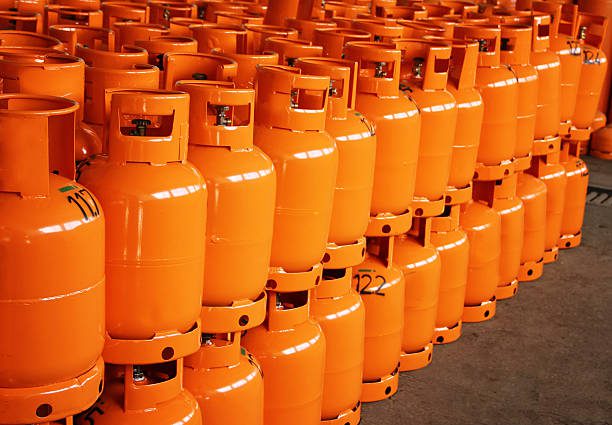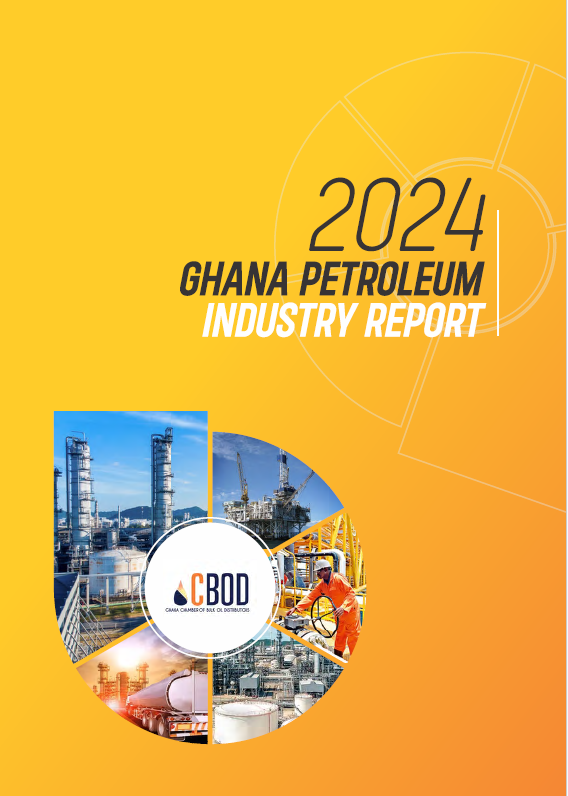Accra, Ghana – August 22, 2024 – The Chamber of Bulk Oil Distributors (CBOD) is deeply concerned about the recent decision by Liquefied Petroleum Gas Marketing Companies (LPGMCs) to cease business relations with SAGE Petroleum (Quantum Terminals) and Blue Ocean depots in Tema. These two companies are valued members of the CBOD and are key players in the downstream petroleum sector.
Quantum Terminals and Blue Ocean Investments Limited are Ghanaian companies that have been legally registered by the laws of Ghana and comply with the National Petroleum Authority (NPA) Act 691, Act 2005. Hence, there is nothing illegal about their operations.
Quantum and Blue Ocean have over the years contributed to the infrastructural development of the downstream by investing in Quantum Terminals and Tema Multi-Purpose Terminals (TMPT), contributing to about 9% and 14% of private sector petroleum products storage capacity, respectively. They have made substantial investments in the LPG industry, particularly in the Cylinder Recirculation Model (CRM). This model is aligned with the government’s target of increasing LPG usage to 50% by 2030. Their commitment to this initiative is evident in their over $30 million investment in bottling plants, storage facilities, and cylinders, as well as a $70 million investment with the next 18months.
Moreover, Blue Ocean and Quantum Terminals invested in a bottling plant facility in response to the government’s initiative launched in 2014. While we advocate for the protection of Ghanaian businesses, and are opposed to illegal activities, it is equally important to avoid deliberate misinformation and misrepresentation that could create undue controversy over the facts associated with the issue under discussion.
Every entity in the value chain must be held accountable. If any of our members are found to be in violation of these regulations, the regulator must take decisive action. What we cannot allow is for the hard work and reputation of our industry to be undermined by baseless allegations that seek to use xenophobic ideas to tarnish these respectable companies’ reputation.
Goil has obtained a license and has constructed and commissioned two bottling plants in Tema and Kumasi. Similarly, Ghana Gas, which has also acquired a license, intends to establish its own bottling plant. Is it illegal for both institutions to participate in the LPG market? The answer is no. Where lies the monopolistic Market created for New Gas and Blue Ocean? It is essential to advocate for a level playing field where all companies can compete fairly. Efficiency should drive the market, leading to cheaper and safer LPG delivery for consumers. This requires the use of high-quality materials like proper LPG hoses, cylinders, and regulators. We must oppose attempts to introduce substandard materials, as they compromise safety and environmental standards, affecting everyone involved.
It is vital to note that both companies meet the Ghanaian Content and Ghanaian Participation Policy set up by the Ministry of Energy, which we commend the Ministry for introducing before parliament to enable the industry have an Act that protects local indigenous personnel within the downstream sector. By employing Ghanaian personnel and partnering with local LPGMCs, dealers, and transport companies, they contribute to the growth of the Ghanaian economy.
The decision by LPGMCs to cut ties with these companies is counterproductive to the LPG promotion efforts by government, NPA and all stakeholders. While we strive to preserve our environment, we must never compromise our safety and efficiency of domestic Gas usage by spreading misinformation. A competitive business environment is essential for innovation and growth. We urge all stakeholders to engage in constructive dialogue to resolve this issue and foster collaboration within the industry.
CBOD stands in solidarity with Quantum Terminals and Blue Ocean and calls for a swift resolution that benefits all parties involved. We encourage our brothers from the LPG Marketing Companies (LPGMCs) to collaborate with the regulator and all relevant stakeholders, as none of us in the space pose a threat to each other, but the market will go against those who fail to comply, innovate and evolve. We believe that working together is the key to ensuring nationwide access to safe LPG by 2030.





